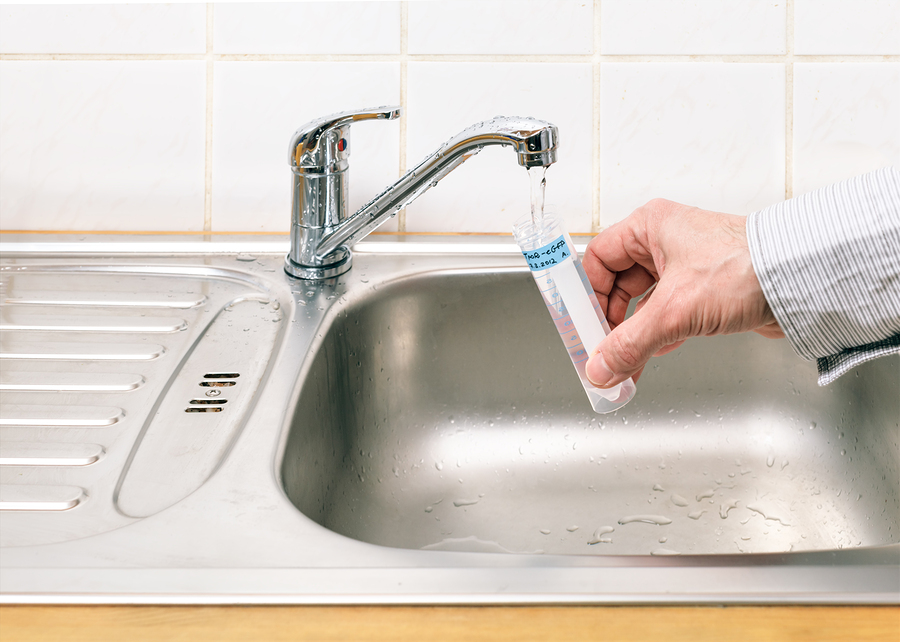The past few months have seen our nation’s drinking water in the headlines for lead being in the water system. While one would think you could taste contaminants in the drinking water, some cannot be detected via taste, smell or color. It’s important to know what you’re putting into your body, so, do you think your drinking water is safe?
Who?
If you live in an area that uses public water supplies, your water is already tested regularly at the municipal treatment locations (and you pay for it via your water bill). Chlorine and ammonia are added to the water to deal with toxins that water might come in contact with while traveling through vast water supplies from the plant to your home. This is the reason for the chlorine odor and taste you get from your home’s tap water. There are tests and solutions to reduce or eliminate this odor and taste–contact your plumbing experts at Weather Master’s Mr. Plumber for a free in-home water analysis. If you have a private well, you will want to test your water (which you will have to pay for yourself).
What should I test for?
Unfortunately, there is not one test that can test for all possible contaminants, so if you have concerns about your water, it is recommended that you contact the local health department for recommendations as to what you should test for, or feel free to contact Weather Master.
For a complete list of what you should test for, see this PDF from West Virginia University which lists suspected contaminants and symptoms that encourage water testing.
How often should I test?
There is no set timeframe for how often or when you should test your water. If you, or your family, has suffered from gastrointestinal disease, you should test for coliform yearly. If you are concerned about lead contamination, you should test immediately and often, the same if your house has had radon detected in the air. Other things that would suggest testing every three years include stains or signs of rust on items such as your bathtub, bad taste or odor or scaly residue.
If your private well is shallow, you should be more prone to test your water more often (sodium, sulfates, iron manganese and lead every three years, unless you have specific problems).
Considering purchasing a new home? Assess the water in the area by testing for coliform, bacteria, nitrate, lead, radon, iron, pH, sulfate, hardness, total dissolved solids or corrosion.
Water samples?
If you’re doing the testing yourself, after contacting the certified laboratory that will be testing your water, make sure you read all of the instructions and follow them carefully—a proper collection is important for getting an accurate test result. Sample containers are usually supplied by the laboratory, and vary depending on the specific test (sampling and handling requirements vary with the contaminant that is being tested for). Or you can take the worry out of the testing and let your experts at Weather Master do the testing for you.
If the results indicate any contaminants, a representative can explain the test results clearly and might be able to help you determine the contamination source. You should also notify the local health department about your test results if there has been contamination. The health department will then help you take the necessary actions to treat your water supply and any health implications that might come from the contaminants.
Your plumbing experts at Weather Master’s Mr. Plumber can help you pinpoint the possible contaminants with routine tests to confirm that nothing has leaked into your water supply through your pipes. Schedule an appointment today.

